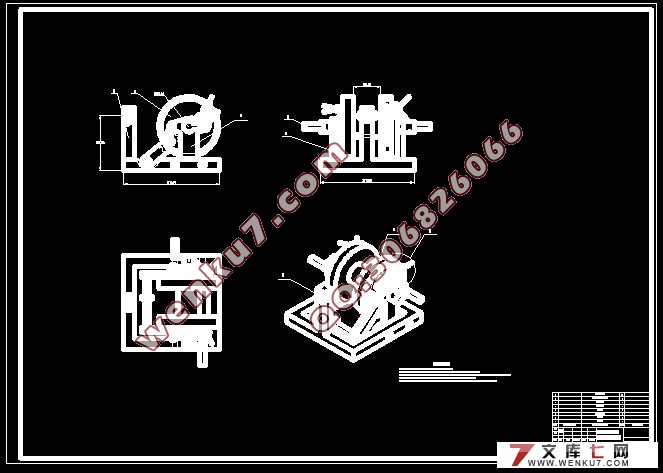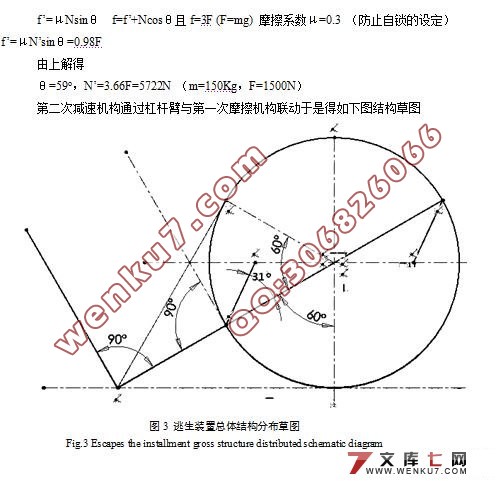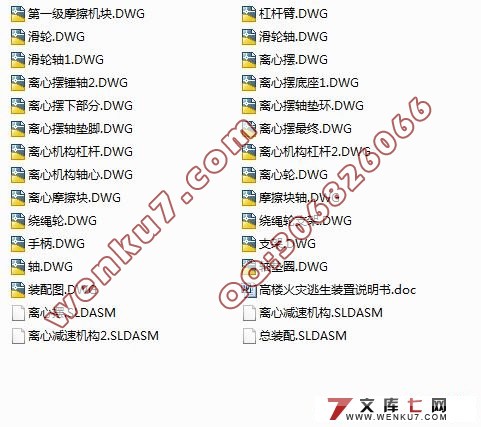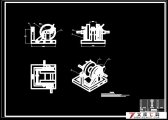高楼火灾逃生装置设计
来源:wenku7.com 资料编号:WK74085 资料等级:★★★★★ %E8%B5%84%E6%96%99%E7%BC%96%E5%8F%B7%EF%BC%9AWK74085
以下是资料介绍,如需要完整的请充值下载。
1.无需注册登录,支付后按照提示操作即可获取该资料.
2.资料以网页介绍的为准,下载后不会有水印.资料仅供学习参考之用. 密 保 惠 帮助
资料介绍
高楼火灾逃生装置设计(论文说明书6900字,cad图纸25张)
摘 要:由于全球城市化的日益扩大,高层建筑物日益增多。同时国内暂时没有实用的大众化家庭高楼火灾逃生设备。而市场上存在的高楼火灾逃生装置存在价格较贵,操作复杂或者安装困难等缺陷。而本产品对于其他同类型产品来说具有结构简单,易制造,易实现动态自控制下降速度等优点。设计的内容包括:高楼火灾逃生装置的结构设计、钢丝绳回收系统的设计。设计主要分为四个部分:第一部分是绪论,第二部分是高楼火灾逃生装置现状及发展趋势,第三部分是设计方案的拟定,第四部分是设计研究的内容。最后还包括结束语、致谢和参考文献。
关键词:高楼火灾逃生装置;自动化;离心运动;控制
Design of high-rise fire escape device
Abstract :As a result of the global urbanization's day-by-day expansion, the high-rise building increases day by day. Simultaneously domestic does not have the practical popular family tall building fire escape apparatus temporarily. But in the market exists the tall building fire escapes the installment existence price to be expensive, operation complex or flaws and so on installment difficulty. But this product has the structure regarding other same type product to be simple, easy to make, easy to realize the tendency from merits and so on control rate of descent. The design content includes: The tall building fire escapes the installment structural design, the steel wire recovery system's design. The design mainly divides into four parts: The first part is an introduction, the second part is the tall building fire escapes the installment present situation and the trend of development, the third part is design proposal sketch, the fourth part is designs the research the content. Finally also includes the concluding remark, the acknowledgment and the reference
Key words: design of high-rise fire escape device;automation;eccentric exercise;control



目 录
摘要 1
关键字 1
1 前言 2
1.1 选择本课题的目的和意义 2
1.1.1 现实意义 2
1.1.2 理论意义 2
1.2 高楼火灾逃生装置的现状及发展趋势 2
1.2.1 现状 2
1.2.2 趋势 3
2 设计方案的拟定 3
3 高楼火灾逃生装置的设计 5
3.1 高楼火灾逃生装置主要技术参数 5
3.1.1 主要技术参数的内容 5
3.1.2 主要技术参数的确定 5
3.2 高楼火灾逃生装置的结构设计计算 6
3.2.1 机身的设计 6
3.2.2 机身各部件结构材料的选择 6
3.2.3 绕绳轮轴的设计计算及强度校核 7
3.2.4 第二级减速机构的设计及计算 8
3.2.5 精度等级公差和表面粗糙度的确定 16
4 机器的安装顺序 17
5 结论 17
参考文献 18
致谢 18
|







